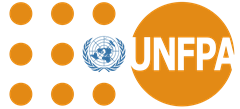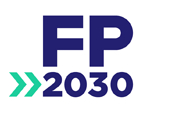Co-Sponsors
UNFPA, WHO, IPPF, FP2030, BMGF, CIFF, and Packard serve as co-sponsors for the HIPs Partnership. The general purpose of the Co-sponsor group is threefold:
- to set strategic direction for the HIP Partnership
- to provide funding and resources and to ensure sustainability
- to catalyze the implementation of HIP Products at scale
The main responsibilities and tasks of the Co-sponsors are to:
- Develop strategy and provide overall direction for the HIP Partnership
- Oversee, enable and facilitate the work of the Partnership, including having decision authority over the HIPs structure and partnership
- Establish a HIP Secretariat and review its operation a regular basis (each 3-5 years)
- Promote the HIPs as a global public good
- Catalyze and support implementation of the HIPs, including through individual organizational approaches
- Maintains an overview of HIPs implementation, including available measurement and tracking data
- Provide a collective, coordinated voice at the country level on HIPs
- Develop partnerships to increase the reach and impact of HIPs
- Approve new types of HIP products
- Uphold the principles of the HIP Partnership
- Periodically review the functionality and effectiveness of the HIP Partnership
Resources
Representatives
Each organization has representatives, one who serves as a non-voting member of the Technical Advisory Group (TAG) and one who is an observer.
Kassa Abbe, Director of SRHR Health Systems, CIFF
Kassa Abbe, PhD, MPH, is the Director of SRHR Health Systems at the Children’s Investment Fund Foundation (CIFF) in London.

Olanike Adedeji, Family Planning Programming Specialist

Nathalie Kapp, Chief Medical Advisor, IPPF
Nathalie Kapp, MD, MPH, is the Chief Medical Advisor at International Planned Parenthood Federation based in London. She is an Obstetrician Gynecologist and was fellowship trained in Complex Family Planning at Dartmouth Medical Center and Boston University. She has a unique perspective in the field of reproductive health after 7 years as a Medical Officer at the World Health Organization contributing to the guidelines for contraceptive use and abortion care, then conducting research on emergency contraception at HRA Pharma, and most recently, as the Medical Director for Ipas where she was investigating the safe use of medical abortion in over-the-counter-like settings, and decreasing barriers to provision and availability of abortion beyond 13 weeks gestation. She has over 80 peer-reviewed publications of her research.

Monica Kerrigan, Managing Director, North America and Europe, FP2030
Monica Kerrigan serves as the Managing Director for the North America and Europe Region, advancing the rights of people everywhere to access family planning and reproductive health services to ensure bodily autonomy, gender equality, and rights. In her role, she is forging partnerships with governments, the private sector, NGOs, youth associations, research organizations, donors, and philanthropists to advance innovation and scale up evidence-based solutions. Ms. Kerrigan is a pioneering leader, expert, and advocate in family planning, sexual and reproductive health and rights, and market dynamics. She served as Executive Director of Planned Parenthood Global expanding access to reproductive health services in Africa and Latin America. She worked at the Bill and Melinda Gates Foundation for nine years, launching the London Summit on Family Planning in 2012 and supporting the design and implementation of Family Planning 2020, the Ouagadougou Partnership, and the Implant Access Program. Ms. Kerrigan also served for 10 years at USAID in the Office of Population and Reproductive Health and served at USAID Mission in Indonesia for 4 years working on maternal and newborn health and family planning. She has worked at Jhpiego advancing Innovation and Technical Leadership across more than 30 countries in Africa and Asia. Monica has a Master of Public Health degree from the University of North Carolina, specializing in maternal and child health. She is a former Peace Corps Volunteer and primary health care trainer in rural Mali.

James Kiarie, Unit Head, Contraception and Fertility Care, WHO
Dr. Kiarie qualified as an obstetrician gynaecologist in 1992. Prior to joining WHO in December 2014, he was an Associate Professor in Obstetrics and Gynaecology at the University of Nairobi, and a Consultant Obstetrician Gynaecologist in Kenyatta National Hospital.
Dr. Kiarie has over 20 years experience in teaching, clinical practice and research in the field of reproductive health, focusing on HIV/AIDS, sexually transmitted infections and family planning. He has also led programs in health professionals training, mentorship and use of information technologies in research and training.
From 2008, he led the University of Nairobi HIV Fellowship Programme, which was the first programme approved by the university for public health training. He has been the principal investigator for the implementation of a number of multicountry and multisite research collaborations, such as the reproductive health decisions and HIV infection risk study, and for the training of HIV Programme Managers, to support the Kenyan National HIV AIDS response.
In 2014, Dr Kiarie received a merit award from the Kenya obstetrician and Gynaecologists Society in recognition of his services in providing and promoting reproductive health services in Kenya.

Yann Lacayo, Family Planning Advisor – Technical Global Lead
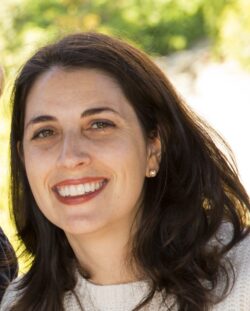
Elaine Menotti, Health Science Specialist, Deputy Division Chief, USAID
Elaine Menotti leads the Service Delivery Improvement Division in USAID’s Office of Population and Reproductive Health (PRH), where she has worked since 2011, supporting and advancing the division’s collaborative efforts to expand access to and use of quality, voluntary FP/RH information, products and services, with a focus on reaching underserved groups and youth. Prior to this role, Elaine worked on SDI’s Private Sector team as a technical advisor on private sector market development programming, clinical and community level health service delivery programs, and with strategic initiatives on expanding contraceptive method choice and the health workforce. She serves as an Associate Editor for the Global Health Science and Practice Journal, a peer-reviewed journal dedicated to research utilization and learning from practical implementation. Prior to PRH, she also worked in USAID’s now Maternal, Child Health and Nutrition Office on integrated community health programming. Before joining USAID, Elaine worked at Futures Group (now Palladium) as a policy analyst and research scientist to strengthen policies, financing and programs for public and private sector family planning and reproductive health. She has worked in Central America with local and international NGOs, as well as domestically, to design, implement and monitor community-based FP, MCH, and nutrition programs. She has a Masters in Public Health in Health Behavior and Health Education and a Certificate in Reproductive and Women’s Health from the University of Michigan and a dual Bachelor of Arts in Biological Anthropology and Anatomy and Cultural Anthropology from Duke University.
John Osborne, Senior Manager
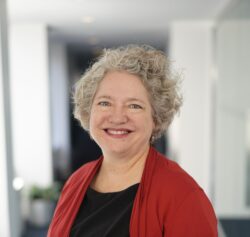
Laura Raney, Director, HIPs Secretariat, FP2030
Laura Raney is the Director of the HIPs Secretariat and the Senior Technical Advisor for HIPs at FP2030. In this role, Laura leads the HIPs Partnership including facilitating the monthly meetings of the seven HIP Co-sponsor organizations, USAID, UNFPA, WHO/IBP, IPPF, FP2030, BMGF, and CIFF, leads coordination of the joint annual workplan to facilitate scale up of the HIPs. She also convenes the HIP Technical Advisory Group (TAG). As Senior Technical Advisor, she works with policymakers and key stakeholders in FP2030 commitment-making countries to prioritize evidence-based investments in FP/RH. Prior to joining FP2030, Laura worked with Jhpiego as Senior Technical Advisor and Senior Knowledge Management Advisor for the Maternal and Child Survival Program (MCSP). She also has held positions with FHI 360, the Population Council, the World Bank, and USAID. Laura holds a master’s degree in economics and demography.
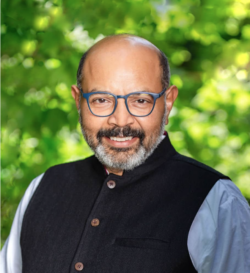
Anand Sinha, Country Advisor, David & Lucile Packard Foundation
Anand Sinha is a regional advisor to the Global Reproductive Health Initiative, contributing to the initiative’s strategy, grant making, evaluation and learning for South Asia. He is based in New Delhi and has over 28 years of experience in public health, primarily related to reproductive, maternal and child health. Before joining the Packard Foundation, he led the Gates Foundation’s primary health care initiative in partnership with the government of Bihar, and prior to that led several USAID supported private sector partnerships for reproductive health, child survival and TB.
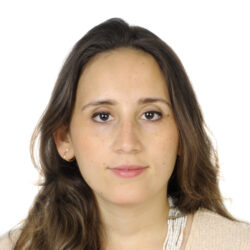
Nihal Said, Senior Technical Advisor, Research and Partnerships, IPPF
Nihal Said is a Senior Technical Advisor for research and partnerships at IPPF, where she co-leads research projects on emerging sexual and reproductive health (SRH) priorities with Member Associations. With extensive experience in humanitarian and development program management, Nihal has worked across UN agencies and INGOs at country, regional, and global levels. She holds a Bachelor of Science degree in Statistics from Cairo University, a Master’s degree in Communication and Development Studies from Ohio University. Nihal’s multidisciplinary and intersectional approach is reflected in her work, which focuses on sexual and reproductive health, decolonising research, communication for development, , community engagement. Her contributions include authoring published articles and research studies on topics. Previously, Nihal served as the Adolescent Girls Investment Plan (AGIP) Programme Manager at Plan International and prior to that was the Youth and HIV Specialist at the United Nations Population Fund (UNFPA).
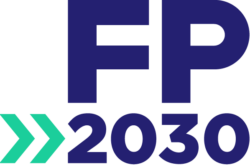
Rachel Templeton, Manager, HIPs Secretariat

Melkam Teshome, Program Manager, SRHR Heath Systems, CIFF
Melkam Teshome is a public health professional with 20 years of experience in designing, implementing, and managing different SRHR programs. She currently serves as program manager for SRHR health systems at CIFF London office since February 2023 where she oversees CIFF’s self-managed SRHR portfolios that focuses on system strengthening and building enabling policy and regulatory environment. Prior to joining CIFF, Melkam worked at MSI Reproductive Choices as global Project Director, Program Director, and Clinical Service Delivery Manager from 2012-2022. She has also served with EngenderHealth Ethiopia to improve access and utilization of comprehensive contraception and comprehensive abortion care through technical assistance to the government. Melkam contributed to the development of MSI-Ethiopia’s private sector strategies and its social business model, worked with regional authorities to increase budget allocations for SRH/FP, and contributed to the development/revision of national guidelines, tool kits and protocols – including Ethiopia’s national FP counselling guidelines, national RH strategy, national FP training manual and task-sharing guidelines for LARCs by community health workers. Melkam holds a BSc in Public Health from University of Dilla, Ethiopia as well as MPH from University of Gondar, Ethiopia.

Nandita Thatte, Technical Office, WHO/IBP Initiative
Nandita Thatte leads the IBP Initiative housed at WHO in Geneva Switzerland. Her current portfolio includes institutionalizing the role of IBP and its network of NGO and CSO partners to support the dissemination and use of evidence based interventions and guidelines, and to strengthen the linkages between IBP field based partners and WHO researchers to inform implementation research agendas. Prior to joining WHO, Nandita was a Technical Advisor in the Office of Population and Reproductive Health at USAID where she designed, managed, and evaluated programs in West Africa, Haiti and Mozambique. Nandita has a MPH from Johns Hopkins School of Public Health and a DrPH in Prevention and Community Health from the George Washington University School of Public Health.
Amit Kumar Yadav, Senior Program Officer
